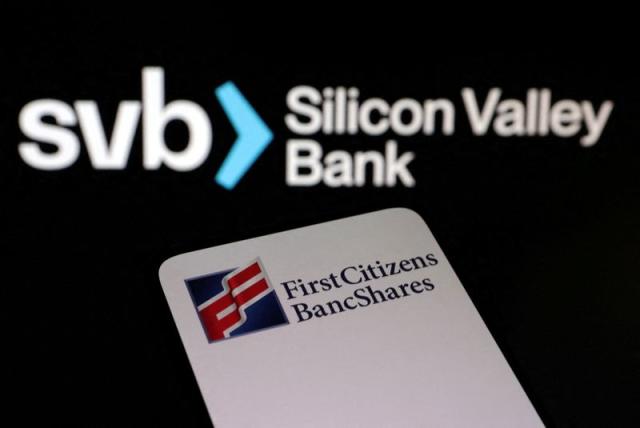U.S. authorities said on Monday that they would support the acquisition of the defunct Silicon Valley Bank by regional lender First Citizens BancShares, which would have caused a $20 billion hit to a government-run insurance fund. The agreement comes after the Federal Deposit Insurance Corporation assumed control of Silicon Valley Bank on March 10 following a bank run that also brought down Signature Bank and destroyed more than half the market value of several other regional lenders in the United States.
In a conference call with investors on Monday, CEO Frank Holding described the purchase as “momentous” for First Citizens. “We believe this transaction is a great outcome for depositors.” According to a Piper Sandler note on Monday, the Raleigh, North Carolina-based lender had executed 21 government-assisted mergers, including 14 since 2009 when CEO Holding was appointed chairman. The FDIC fund is refilled by a fee on participating banks rather than withholding funds from American taxpayers.
According to a note published on Monday by a group of Wells Fargo analysts under the leadership of Mike Mayo, “The FDIC’s sale of SVB helps show business can go on as usual for the banking industry.” First, Citizens will only make an upfront payment for the transaction. Instead, it claimed that it had given the FDIC equity appreciation rights in its shares that may be worth up to $500 million, a small portion of the value of Silicon Valley Bank before its failure.

First Citizens will take $72 billion in loans of Silicon Valley
The FDIC may use these powers from March 27 to April 14. The cash it gets will depend on how much First Citizens’ stock is worth. Shares of First Citizens increased 47% on Monday to $854.62. As part of the agreement, First Citizens will take over the $110 billion in assets, $56 billion in deposits, and $72 billion in loans of Silicon Valley Bank. According to the FDIC, SVB’s assets were purchased for $72 billion at a $16.5 billion discount.
As additional protection against future credit losses, First Citizens will arrange with the regulator to share certain losses on commercial loans and get a line of credit from the FDIC for contingency liquidity needs. According to Redmond Wong, more excellent China market strategist at Saxo Markets, “First Citizens Bank’s acquisition of the SVB loan book and deposits does not add much to solve the number one issue that the U.S. banking system is now facing: deposits leaving smaller banks for larger banks or money market funds.”
Silicon Valley Bank, a Santa Clara-based lender with around $209 billion in assets, was the 16th-largest lender in the United States at the end of 2017.
The agreement ended the worst financial crisis since 2008, which threw the global banking industry for a loop. Friday saw a dramatic decline in the value of European lenders’ shares, headed by Germany’s Deutsche Bank, which caused authorities to worry about a potential credit crisis.
FDIC also suffered a $2.5 billion loss when it sold Signature Bank to New York
On Monday, shares of big and midsize US banks increased. Customers of SVB will still be able to access their accounts via websites, mobile applications, and branches, according to First Citizens. Workers from the purchased companies would remain on board, it was said.
According to First Citizens, the agreement would hasten its growth in California and offer access to asset management services in the northeastern United States. First Citizens has deposits of $89.4 billion and assets of about $109 billion. According to a presentation by First Citizens, the merged organisation will have $145 billion in deposits and $219 billion in total assets. In addition to that, the FDIC also suffered a $2.5 billion loss when it sold Signature Bank to New York Community Bancorp a week ago.
The fund will drop to around a third of its statutory minimum as a result of the loss, which will be “handled solely by the banking industry,” according to Wells Fargo analysts. The regulator stated that securities and other assets from SVB worth around $90 billion would continue to be in receivership pending disposal.


